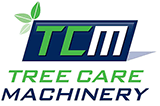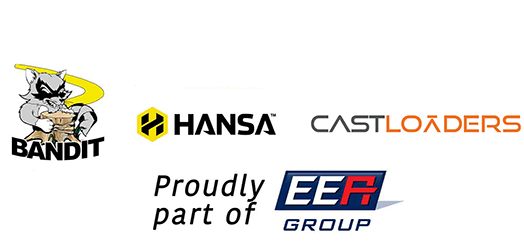It’s really common to find that some of the most neglected parts on a wood chipper are the blades and the bed knife or anvil.
These parts of your chipper are actually the sole reason you purchased the big beast of a machine in the first place. Without them it’s just 3-tons of fuel guzzling noise that you tow behind your truck, totally useless!
It’s important to remember that these items are sacrificial and don’t last forever. However, we have seen a few people in our time who believed this was the case!
Blunt blades and anvil result in:
- Stress on the blade bolts and fasteners causing failure
- Excessive fuel consumption
- Accelerated belt, bearing and clutch wear and premature failure
- Unnecessarily harsh vibration that leads to failures of items such as switches, relays, solenoids, covers, latches and lights
- Poor chip quality, discharge blockages, poor throwing characteristics, poor feed performance and more operator input which increases the chances of injury through excessive handling of the tree waste
- More down time and costly repairs to easily preventable faults and failures
Wood chipper blades need to be above minimum width, sharpened to the correct angle, sharp, and correctly installed with precise clearance to the anvil for optimum performance. Incorrect angles can significantly over stress the bolts and lead to catastrophic failure, injury or death.
Frequent bolt replacement is cheap insurance to prevent a blade “exiting” the chipper at full speed, a truly terrifying experience. Bolts should be changed after you have dulled 2 sets of blades, IE: 4 edges.
If rotating your blades to a fresh edge, ensure you scrape the blades and the mounting surface of the drum or disc to ensure you don’t trap dirt under the blades when you bolt them down. Failure to do this can cause an uneven surface and the blade to crack when you torque the bolts down.
YES, you read that correctly! TORQUE the bolts correctly to the specified value that can be found in the operator’s manual.
The anvil condition and clearance to the blades is also critical to the success of the chipping operation. As the blades are sharpened, they become narrower, this alters the clearance to the anvil and quite often results in very little perceived benefit from installing sharpened blades! It is imperative that the anvil is moved and the accurate gap is maintained.
If the anvil loses its edge then rotating it to an unused edge is required.
The anvil, like the blades, requires clean surfaces, replacement bolts and correct torque values.
Preventing problems before they occur is always safer, cheaper and more rewarding in the long run.
It is important to always carry a spare set(s) of chipper blades. Safe and correct storage of your spare knives is critical to their life span and your safety. Tree Care Machinery rely on BES for the safest and most affordable knife boxes on the market.
If you would like to have your blades professionally sharpened, please contact us on 08 8277 8700 or email [email protected].
– Garth Jones, Workshop Manager



